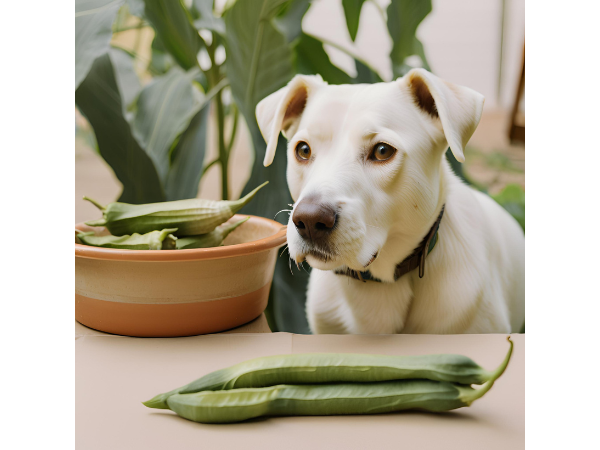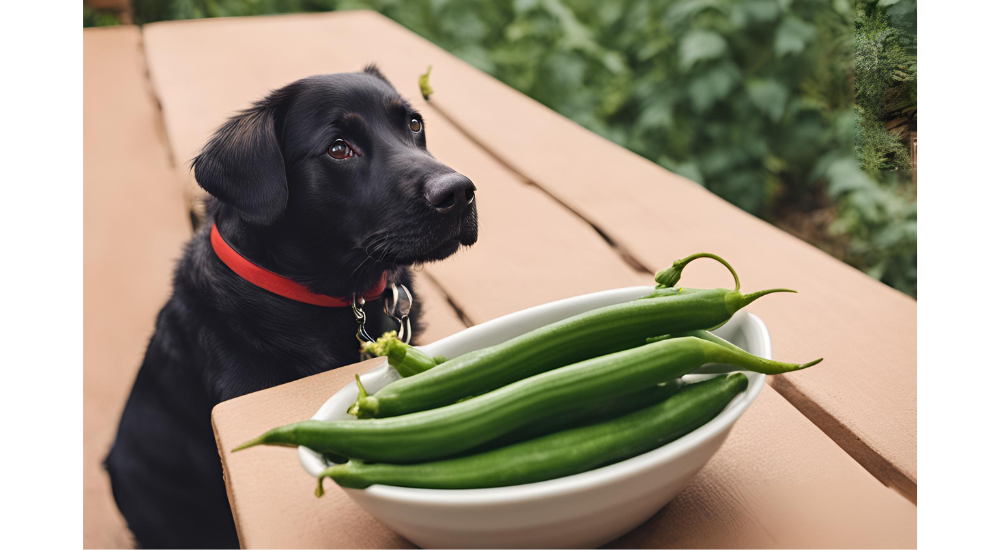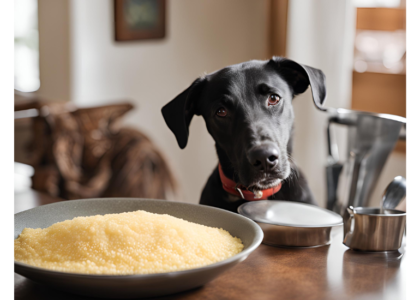Yes, dogs can have okra in moderation. Ensure it is plain, cooked, and free from seasonings and additives.
Okra is a nutritious vegetable, rich in vitamins and minerals. It can offer health benefits to your dog, such as aiding digestion and providing essential nutrients. Always introduce new foods gradually to monitor for any adverse reactions. Avoid fried or heavily seasoned okra, as these can harm your dog’s health.
Steamed or boiled okra without added ingredients is the best option. Consult your veterinarian before making significant changes to your dog’s diet. Proper preparation ensures okra is a safe and healthy addition to your dog’s meals. Remember, moderation is key to maintaining a balanced diet for your pet.
Table of Contents
Nutritional Value Of Okra
Okra, often referred to as “lady’s finger,” is a green vegetable known for its unique texture and nutritional benefits. But can dogs have okra? The answer is yes, dogs can eat okra in moderation. Let’s dive into the nutritional value of okra to understand why it can be a healthy treat for your furry friend.
Vitamins And Minerals In Okra
Okra is packed with essential vitamins and minerals that can benefit your dog’s health. Some of the key nutrients found in okra include:
- Vitamin A: Supports vision, skin health, and immune function.
- Vitamin C: Acts as an antioxidant and boosts the immune system.
- Vitamin K: Important for blood clotting and bone health.
- Folate: Essential for DNA synthesis and repair.
- Calcium: Crucial for bone health and muscle function.
- Potassium: Helps maintain fluid balance and proper muscle function.
Here’s a quick look at the vitamin and mineral content per 100 grams of okra:
| Nutrient | Amount |
|---|---|
| Vitamin A | 36 µg |
| Vitamin C | 23 mg |
| Vitamin K | 31.3 µg |
| Folate | 60 µg |
| Calcium | 82 mg |
| Potassium | 299 mg |
These nutrients play a vital role in maintaining your dog’s overall health. Ensure okra is cooked and served in small amounts to avoid any potential digestive issues.
Fiber Content In Okra
Okra is an excellent source of dietary fiber, which can aid in your dog’s digestion. Dietary fiber is essential for maintaining a healthy digestive system, and it can help prevent constipation and promote regular bowel movements.
One cup of cooked okra contains about 3 grams of fiber. This high fiber content can help in:
- Regulating bowel movements: Fiber adds bulk to the stool, making it easier to pass.
- Controlling blood sugar levels: Fiber slows down the absorption of sugar, preventing spikes in blood sugar levels.
- Promoting a healthy weight: Fiber helps your dog feel full, reducing the likelihood of overeating.
It’s important to introduce fiber gradually into your dog’s diet to avoid any gastrointestinal upset. Start with small portions of cooked okra and monitor your dog’s response.
Incorporating fiber-rich foods like okra can enhance your dog’s digestive health. Always ensure that the okra is free from any seasoning or additives that could be harmful to your pet.
Feasibility Of Dogs Consuming Okra
Dogs love their treats, and as pet owners, we often wonder about the best snacks to give them. Okra is a popular vegetable in many kitchens, but can dogs have okra? Understanding the feasibility of dogs consuming okra is crucial for ensuring their health and happiness.
Is Okra Safe For Dogs?
Yes, okra is generally safe for dogs. This green vegetable can be a healthy addition to their diet when given in moderation. Fresh, cooked, or raw okra can be fed to dogs, but avoid seasoning or frying it, which could be harmful.
When introducing okra, follow these guidelines:
- Start with small amounts to monitor any allergic reactions.
- Avoid feeding okra seeds, which might cause digestive issues.
- Cut okra into bite-sized pieces to prevent choking hazards.
Monitor your dog’s reaction after eating okra. Look for signs of gastrointestinal distress like vomiting or diarrhea. If any adverse reactions occur, stop feeding okra and consult your vet.
Avoid fried okra and okra with added spices. These can cause severe digestive problems for dogs. Stick to plain, unseasoned okra to ensure it’s safe.
Benefits Of Okra For Dogs
Okra is not only safe but also beneficial for dogs. Here are some health benefits:
- Rich in vitamins: Okra contains vitamins A, C, and K, which support your dog’s immune system and vision.
- High in fiber: This aids in digestion and can help prevent constipation.
- Low-calorie snack: Okra is a great option for dogs needing a low-calorie treat.
Let’s break down these benefits in a table:
| Nutrient | Benefit |
|---|---|
| Vitamin A | Supports vision and immune health |
| Vitamin C | Boosts the immune system |
| Vitamin K | Helps with blood clotting |
| Fiber | Aids in digestion |
Adding okra to your dog’s diet can provide these nutritional benefits. Always ensure it’s part of a balanced diet and not overused. This way, you can keep your furry friend healthy and happy.

Preparing Okra For Dogs
Dogs can enjoy many vegetables, and okra is one of them. Preparing okra for dogs requires a bit of attention to ensure it’s safe and healthy. This blog post will guide you through the best ways to prepare okra for your furry friend.
Cooked Vs. Raw Okra For Dogs
Cooked okra is generally safer for dogs than raw okra. Cooking helps to break down tough fibers, making it easier to digest. Here are some key points to consider:
- Steamed or boiled okra retains most of its nutrients and is easy on a dog’s stomach.
- Avoid frying okra as it adds unnecessary fats and oils, which can be harmful.
- Grilled okra can be a tasty treat, but ensure it’s not seasoned with harmful spices.
Raw okra is also an option, but it may be tougher to chew and digest. If you choose to give your dog raw okra:
- Wash thoroughly to remove any pesticides or dirt.
- Cut into small pieces to avoid choking hazards.
- Monitor your dog for any signs of digestive discomfort.
Here’s a quick comparison table for better understanding:
| Preparation Method | Pros | Cons |
|---|---|---|
| Steamed | Retains nutrients, easy to digest | None |
| Boiled | Easy to digest, simple preparation | May lose some nutrients |
| Grilled | Tasty, retains nutrients | Risk of harmful seasoning |
| Raw | Natural, retains all nutrients | Hard to chew, may cause digestive issues |
Recommended Portion Sizes For Dogs
Serving the right portion size of okra is crucial. Too much can lead to digestive issues. Here are some guidelines:
- Small dogs (under 20 lbs): 1-2 small pieces of okra per day.
- Medium dogs (20-50 lbs): 2-3 small pieces of okra per day.
- Large dogs (over 50 lbs): 3-4 small pieces of okra per day.
It’s important to start with small portions and observe your dog’s reaction. Gradually increase the amount if no adverse effects are observed. Remember to:
- Mix okra with their regular food for a balanced diet.
- Consult your vet before introducing okra, especially if your dog has health issues.
- Watch for signs of allergies or digestive problems, such as vomiting or diarrhea.
Here’s a quick portion size guide:
| Dog Size | Portion Size |
|---|---|
| Small Dogs | 1-2 small pieces |
| Medium Dogs | 2-3 small pieces |
| Large Dogs | 3-4 small pieces |
Following these guidelines ensures your dog enjoys okra safely and healthily.
Potential Risks Of Feeding Okra To Dogs
Okra, also known as lady’s finger, is a nutritious vegetable often enjoyed by humans. Many dog owners wonder if their furry friends can also benefit from this green pod. While okra does have health benefits, it’s crucial to understand the potential risks of feeding okra to dogs.
Digestive Issues In Dogs
Feeding okra to dogs can lead to digestive issues. Some dogs might have trouble digesting okra properly. This can cause symptoms like:
- Diarrhea: The high fiber content in okra can result in loose stools.
- Bloating: Excess gas might build up in their stomachs.
- Vomiting: Dogs may throw up undigested okra.
Digestive problems can occur if dogs eat too much okra or if it’s not prepared correctly. Cooking okra can make it easier to digest. Avoid giving raw okra to your dog. Also, never add spices or seasonings, as these can be harmful.
Here’s a table summarizing the digestive issues:
| Symptom | Description |
|---|---|
| Diarrhea | Loose, watery stools |
| Bloating | Excess gas in the stomach |
| Vomiting | Throwing up undigested food |
Allergic Reactions In Dogs
Allergic reactions are another risk of feeding okra to dogs. Some dogs may be allergic to okra, leading to various symptoms. These symptoms might include:
- Itching: Dogs may scratch themselves more than usual.
- Swelling: Swollen face, paws, or other body parts.
- Hives: Red, raised bumps on the skin.
If you notice these symptoms after your dog eats okra, they might be allergic. Always introduce new foods gradually and watch for any adverse reactions. Consult your vet if you suspect an allergy.
Here’s a quick reference for allergic reaction symptoms:
| Symptom | Description |
|---|---|
| Itching | Excessive scratching |
| Swelling | Swollen body parts |
| Hives | Red, raised bumps |
Always prioritize your dog’s health. Consult your vet before introducing new foods to their diet. Ensure your furry friend stays happy and healthy.
Frequently Asked Questions
Can Dogs Eat Okra Safely?
Yes, dogs can eat okra safely in moderation. Ensure it’s cooked and free from harmful seasonings. Raw okra can be tough to digest.
Is Okra Good For Dogs?
Yes, okra is good for dogs. It contains vitamins and fiber. Always serve it cooked and plain to avoid digestive issues.
How Much Okra Can Dogs Eat?
Dogs can eat a small amount of okra. Introduce it slowly and monitor for any adverse reactions. Consult your vet for guidance.
Can Okra Cause Allergies In Dogs?
Okra can cause allergies in some dogs. Watch for signs like itching or stomach upset. Stop feeding and consult your vet if symptoms occur.
Conclusion
Dogs can safely eat okra in moderation. It provides valuable nutrients and health benefits. Always serve it plain and cooked. Avoid seasonings and additives. Consult your vet before introducing new foods. With proper precautions, okra can be a healthy treat for your furry friend.
Enjoy watching them thrive with this nutritious snack!










